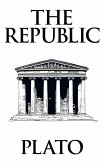"The Fundamental Principles of the Metaphysics of Morals" is a philosophical work by Immanuel Kant, published in 1785. In this work, Kant aims to provide a foundation for moral philosophy by outlining the principles of moral reasoning. Kant argues that morality is not based on human desires or emotions, but on a rational understanding of what is universally good. He believes that moral principles should be based on reason alone, rather than on tradition or religious authority. According to Kant, the only thing that is inherently good is a good will, which he defines as a will that acts in accordance with duty. He argues that actions should be judged not on their consequences, but on the motives behind them. Kant also introduces the concept of the categorical imperative, which is a moral principle that applies to all rational beings. The categorical imperative states that we should act only in ways that we would want everyone else to act in similar situations. Overall, "The Fundamental Principles of the Metaphysics of Morals" is a significant work in the history of philosophy and continues to influence contemporary discussions of ethics and morality. It presents a compelling argument for a rational, universal foundation for moral principles.
Dieser Download kann aus rechtlichen Gründen nur mit Rechnungsadresse in A, D ausgeliefert werden.









